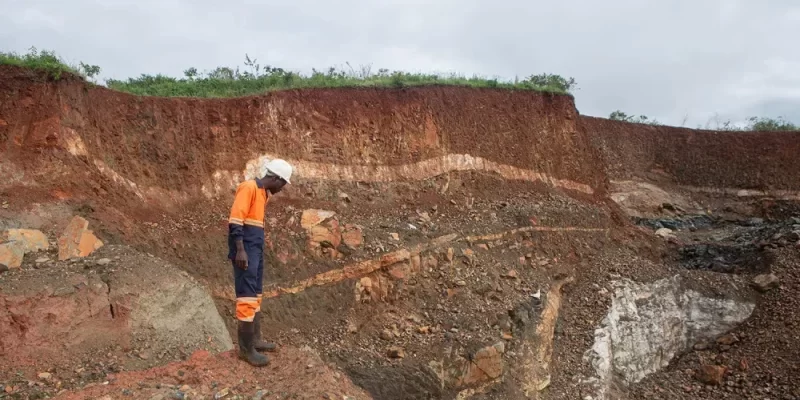
Namibia, a sparsely populated country located in southwestern Africa, is gaining global attention for its abundant reserves of lithium, a key element in the burgeoning green energy revolution.
Lithium, often referred to as “white gold,” plays a crucial role in the production of lithium-ion batteries, powering electric vehicles (EVs) and storing renewable energy.
As the world seeks to transition away from fossil fuels and embrace sustainable energy alternatives, the demand for lithium is skyrocketing, and Namibia’s lithium mining industry is emerging as a significant player in the global supply chain.
Geological Reserves and Exploration
Namibia boasts substantial lithium reserves concentrated primarily in the Erongo and Kunene regions. These lithium deposits occur in the form of pegmatites, spodumene-rich rocks that contain the valuable metal.
Exploration efforts, driven by both domestic and international companies, have accelerated in recent years to identify and assess the extent of the lithium resources in the country.
The mining industry’s interest in Namibia’s lithium potential is supported by the country’s geological characteristics, such as its stable political environment, well-defined mining regulations, and robust infrastructure.
Moreover, Namibia’s commitment to sustainable and responsible mining practices makes it an attractive destination for foreign investors seeking to secure a stable source of lithium supply.
Environmental Considerations
Despite the promise of lithium mining in Namibia, environmental concerns surrounding mining activities cannot be ignored.
To mitigate potential adverse effects, Namibian authorities have instituted stringent environmental regulations to ensure sustainable mining practices.
These regulations focus on preserving water resources, reducing air pollution, and mitigating the impact on local ecosystems and wildlife.
Responsible mining practices also extend to post-mining reclamation and land rehabilitation, as companies are required to rehabilitate areas affected by mining operations to their natural state or repurpose them for sustainable uses.
By enforcing strict environmental standards, Namibia aims to strike a balance between economic growth and ecological preservation.
Social Impact and Community Engagement
Lithium mining projects in Namibia often intersect with local communities, making social impact and community engagement critical aspects of responsible mining operations.
Proactive engagement with stakeholders, including local residents and traditional authorities, is essential for addressing concerns, sharing benefits, and ensuring sustainable development.
Prominent mining companies operating in Namibia have implemented community development programs to enhance education, healthcare, and infrastructure in the regions where they operate.
These initiatives aim to uplift local living standards, foster socio-economic growth, and improve the overall well-being of the communities that are directly or indirectly impacted by mining activities.
Economic Advantages and Diversification
The rise of lithium mining in Namibia contributes significantly to the country’s economic diversification, reducing its dependency on traditional industries like fishing and mining of other minerals such as diamonds and uranium.
As global demand for electric vehicles surges and renewable energy projects expand, the lithium mining industry in Namibia is poised to become a crucial revenue generator and a key driver of economic growth.
Moreover, the development of the lithium mining sector has the potential to create numerous job opportunities for Namibians, supporting employment and entrepreneurship in local communities. Additionally, a vibrant mining industry could attract foreign direct investments, foster technological advancements, and encourage the growth of ancillary industries that support the lithium supply chain.
Namibia’s entry into the global lithium mining industry represents a positive step towards embracing sustainable energy solutions and reducing the world’s carbon footprint.
As the demand for lithium-ion batteries continues to grow, the country’s lithium reserves hold the potential to play a vital role in meeting this demand and catalyzing the green energy revolution.
While challenges related to environmental sustainability and community engagement persist, Namibia has demonstrated its commitment to responsible mining practices.
By striking a balance between economic prosperity and environmental stewardship, Namibia’s lithium mining industry is primed to make a significant impact in the global pursuit of a cleaner and greener future.





